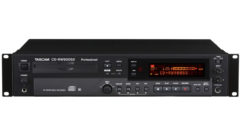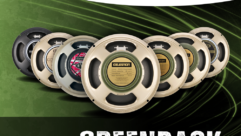
Is Your CD Collection Doomed?
Jun 16, 2014 10:46 AM,
By Jason Bovberg
5 ways to ensure that your physical-media music lasts as long as possible.

Do you remember the first CD you ever bought? Mine was either Paul Simon’s “Graceland” or the soundtrack to “Back to the Future.” I was 18 years old, a budding audio/videophile, and I still remember listening to those discs in a state of awe, marveling over the purity of sound coming out of my Polk speakers. Gone was the snap and crackle of the LP, absent was the hiss and warble of the cassette tape, and in their place was extreme clarity, digital convenience, and lightning-fast playback. Yes, we can have the fidelity debate, but not today. Today, I want to talk about longevity.
Last week, I dug out a long-time favorite CD—the Cocteau Twins album “Blue Bell Knoll,” if you must know—and plunked it into my old, reliable Sony player. As the crescendos of “Carolyn’s Fingers” began crashing, the disc began to skip alarmingly. Experiencing a spurt of adrenaline, I examined the disc, but found nothing wrong. I tried it again: same result. When I tried it on a different player, it played fine. So I chalked up the problem to a fading player, although that player was having no trouble with other discs. The experience left a bad taste in my mouth. Was this the first sign that my rather large CD collection could be failing?
For a long time, I assumed my CD library would remain pristine indefinitely, or at least until I kicked. I read articles about how CDs are manufactured, and came away satisfied. We’re talking about a hard-plastic polycarbonate layer above a metallic layer that stores all the data, and finally a protective coating. It all added up to peace of mind for this audiophile. The truth is disc manufacturers, way back at the beginning of the CD revolution, were feeling their way toward longevity. Their minds were arguably more on mass production than on extreme durability and reliability. Who really knows how long these discs—particularly the older ones—might last?
And that throws a big digital wrench in my plans to consider my existing CD collection as hard-copy, high-resolution backups to my increasingly redundant MP3 library. My modus operandi when ripping CDs to digital has always been to rip at a somewhat compromised bit rate, either 128Kbps or 160Kbps. I do this knowing full well that I can always return to the CD for higher quality if I need it. I’ll always have the CD, right? Well, no, perhaps not.
A little digging unearths some alarming information from the Library of Congress. “All of the modern formats weren’t really made to last a long period of time,” says Fenella France, chief of preservation research and testing. “We’re trying to predict which types of CDs are the discs most at risk. I wish we could definitively say, you know, ‘If you have a CD that was manufactured in 1984, that’s terrible.’ But it’s not quite that simple.”
What’s clear now is that the almighty CD isn’t as indestructible as we once dreamed. Yes, the format has held up pretty well over the years, all things considered, but some of those early discs are 30 years old, and there are many aging factors working against it. Of course, the cumulative effect of simple wear and tear—not to mention exposure to the temperature spectrum, changing humidity levels, and bright light—is taking its toll, but there are other, most pernicious evils. Oxygen has been eating at the layers of your CDs for decades, and the result is increasing numbers of edge-rot doomsday scenarios. If you’re cleaning your CDs with any kind of cleanser, you might be vulnerable to various kinds of corrosion and pollutants. Even extensive play can wear down a CD, not as surely as a needle in the grooves of an LP, but that laser is a small factor nonetheless.
This is all disturbing information, and it’s all causing another paradigm shift in the way I consider the future of my music collection. As I’ve made clear in a few past columns, I’m something of a Luddite when it comes to non-physical media. I’m still not completely in tune with the digital present. I’m facing a near future in which not only my “convenient” music (the MP3 files on my Windows Phone, for example) but also my higher-rez stored music files (on server storage or in the cloud) will need to be digital. There will be time when I won’t even be able to use physical media for backups!
In the meantime, I’m doing everything I can to preserve the CDs I have. I’m no alarmist, and truthfully, I’ve had very few problems. There are some key steps I can take to make sure this collection lasts as long as possible.
1) Handle them properly. Hold them by the center hole or the outer edge. Don’t touch the playing surface, obviously, but also take care not to mar the top surface with adhesives or permanent marker. Doing the latter can damage the metallic layer.
2) Store them properly. Store them upright in their cases, not horizontal, and keep them in a cool, dark, dry environment. Keep them clean and dust-free. Doing so will minimize environmental wear.
3) Clean them properly. One of the earliest pieces of advice I ever got regarding the care of CDs was to never wipe the disc with a circular motion around the disc. That holds true today. Wipe them with a clean, lint-free cloth straight from the center of the hold toward the outer edge. If necessary, use deionized or distilled water to clean CDs, and rubbing alcohol for tough grime.
4) Treat them properly. Don’t bend them, and always return them to their cases immediately after use. Don’t just leave them on whatever surface is close by. Don’t leave them in the car during extreme temperatures. And don’t use them as coasters.
5) Burn to disc properly. Recordable CDs are even more problematic than professionally manufactured discs. Their degradation issues are more common, and they break down faster. So do what you can to make the most of these too. Follow all the advice above, but also make sure not to use corrosive adhesive labels or ink that might contribute to layer failure
Even after all these safety measures, the worst will eventually come to pass. I’m going to have to face the fact that my digital horizon will have even fewer instances of physical media than I thought—even for backup. This realization spells eventual doom for the vaunted CD. Yes, we’ve seen it dwindling in the public consciousness, thanks to the ubiquitous MP3, but now things are serious. I can now imagine the CD as an extinct format. We just have to be ready for that future. Consider your backups appropriately.










